Conflict Management in a Multicultural Workplace: Causes and Solutions
VerifiedAdded on 2022/10/09
|5
|668
|14
Report
AI Summary
This report delves into the critical issue of conflict management within multicultural workplaces. It begins by highlighting the significance of this topic, especially given the increasing diversity in modern workplaces. The report identifies various causes of conflict, including lack of acceptance, lack of unity, poor communication, lack of understanding, and differing expectations among employees from diverse cultural backgrounds. It then explores the negative consequences of such conflicts, such as a polluted work culture, reduced employee productivity, and decreased employee engagement. To address these challenges, the report recommends that companies establish policies that promote equality and acceptance. It suggests training employees on effective communication and workplace ethics, and creating opportunities for employees to discuss their concerns with management. The report concludes by emphasizing the importance of proactive measures to foster a harmonious and productive work environment.
1 out of 5
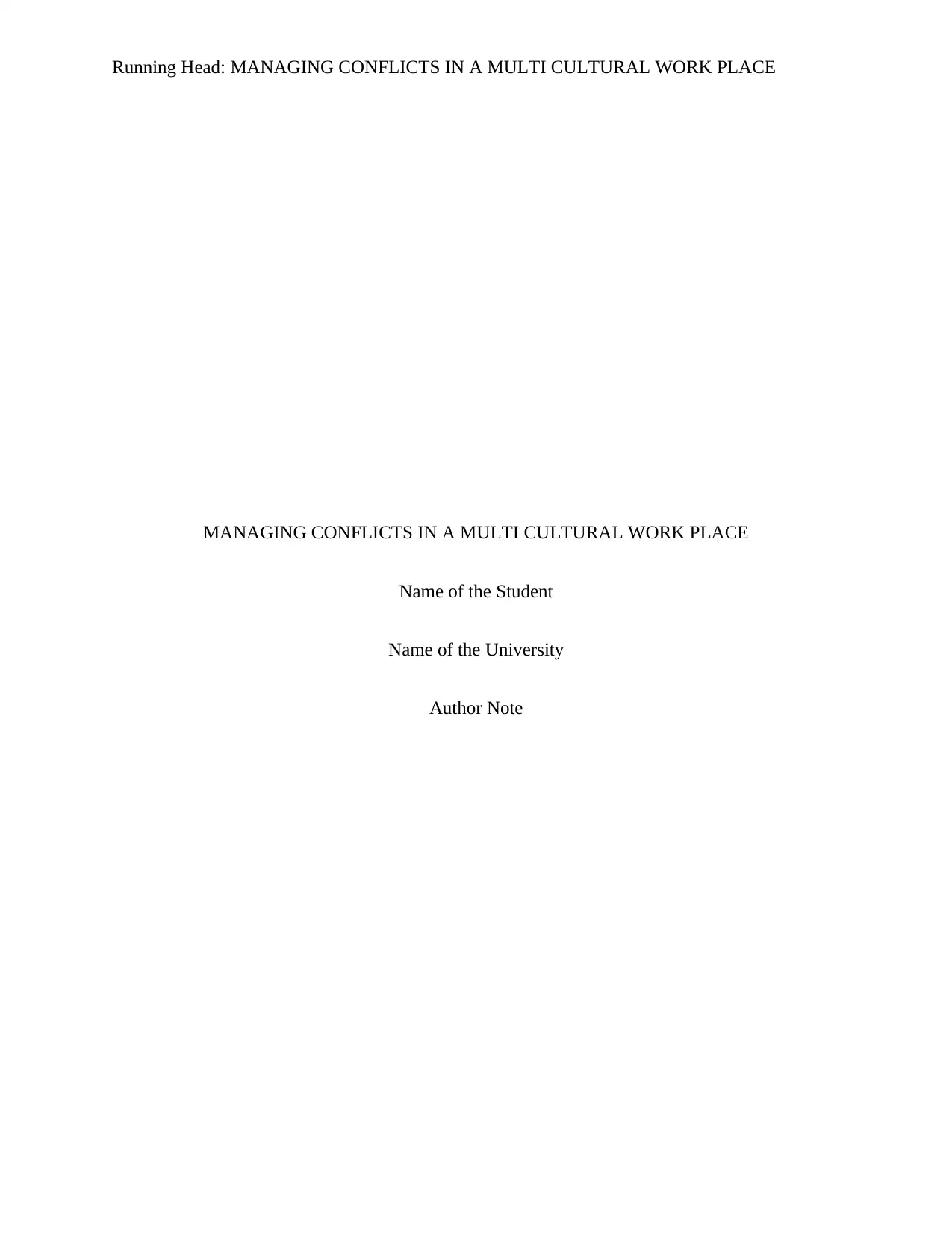
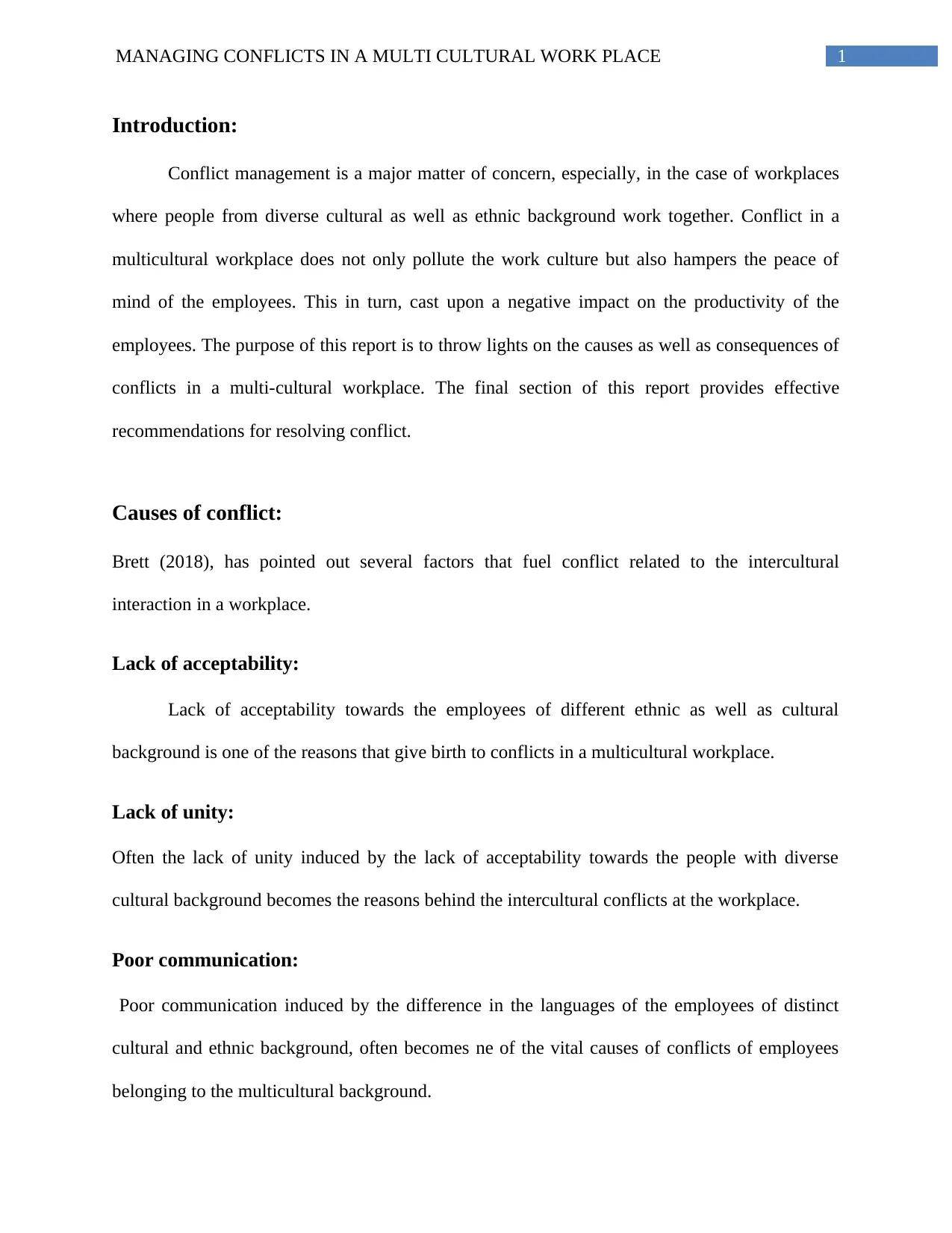
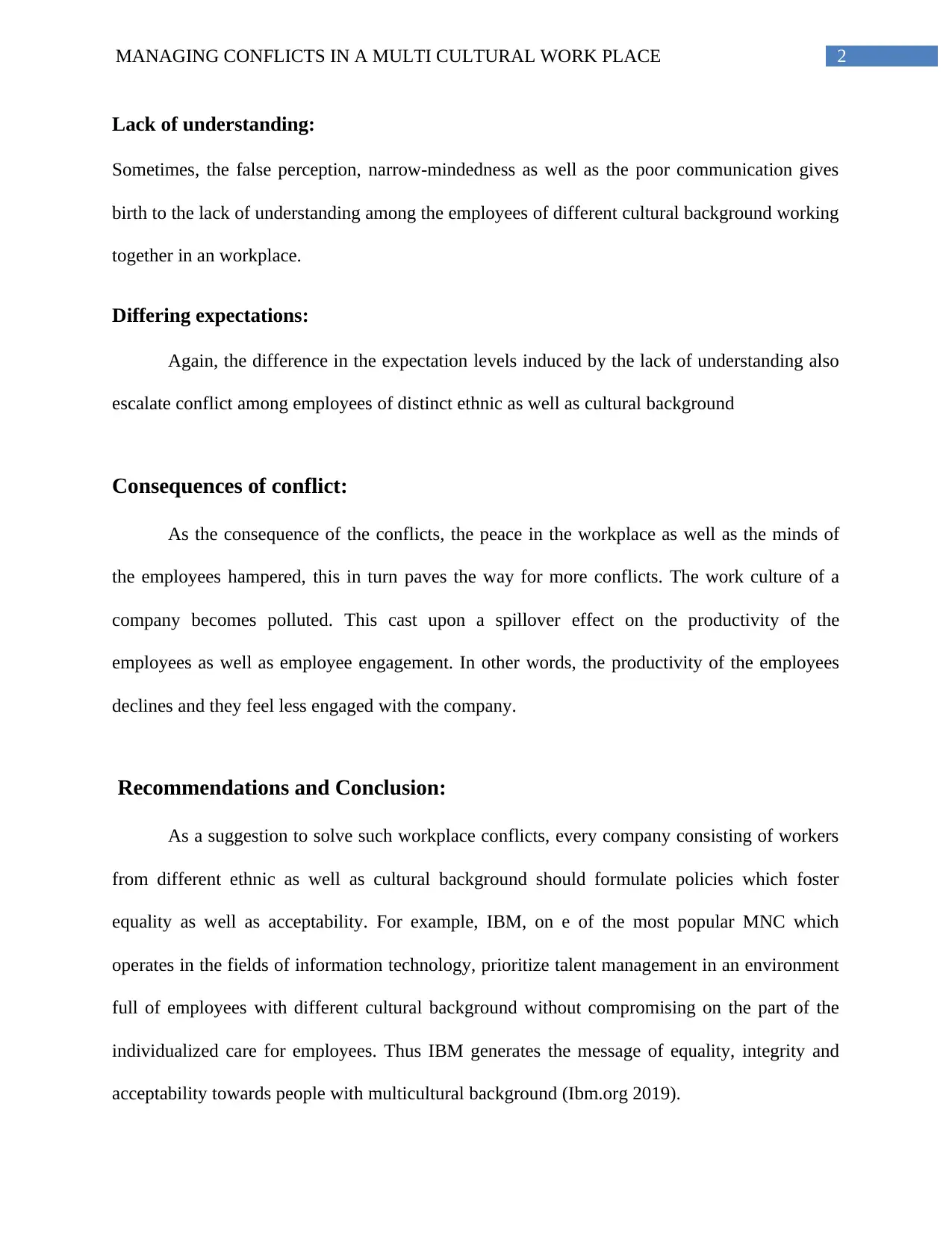

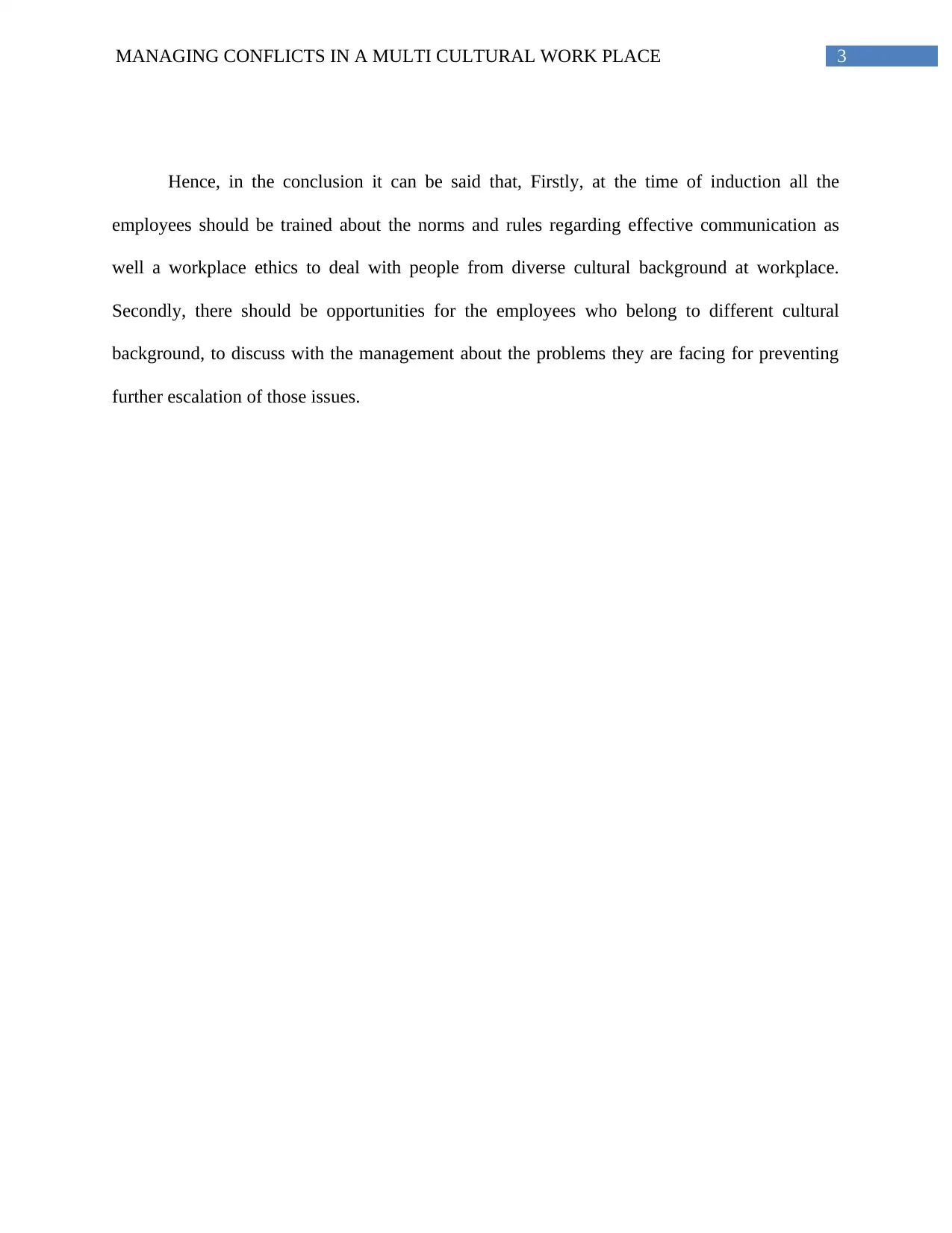
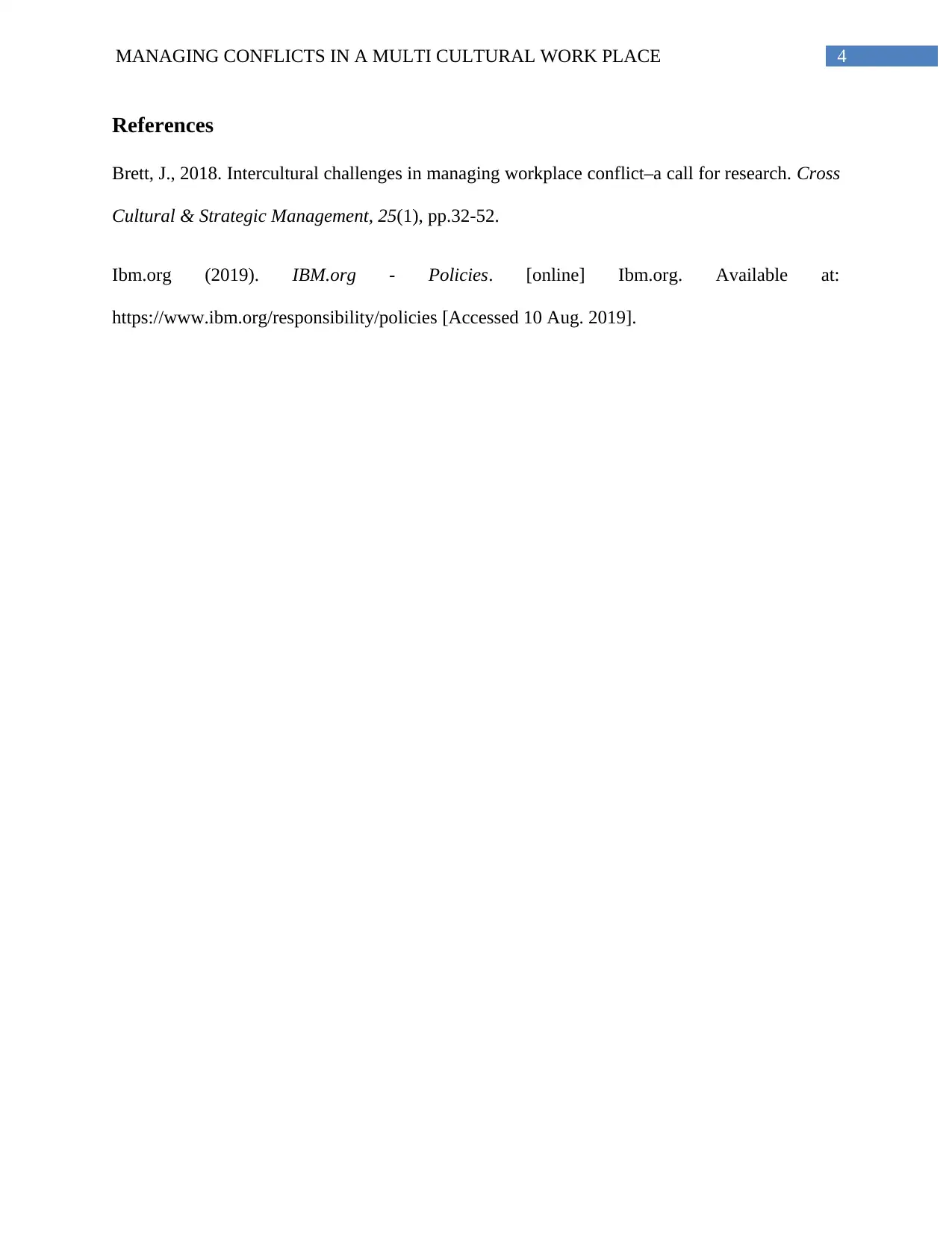





![[object Object]](/_next/static/media/star-bottom.7253800d.svg)